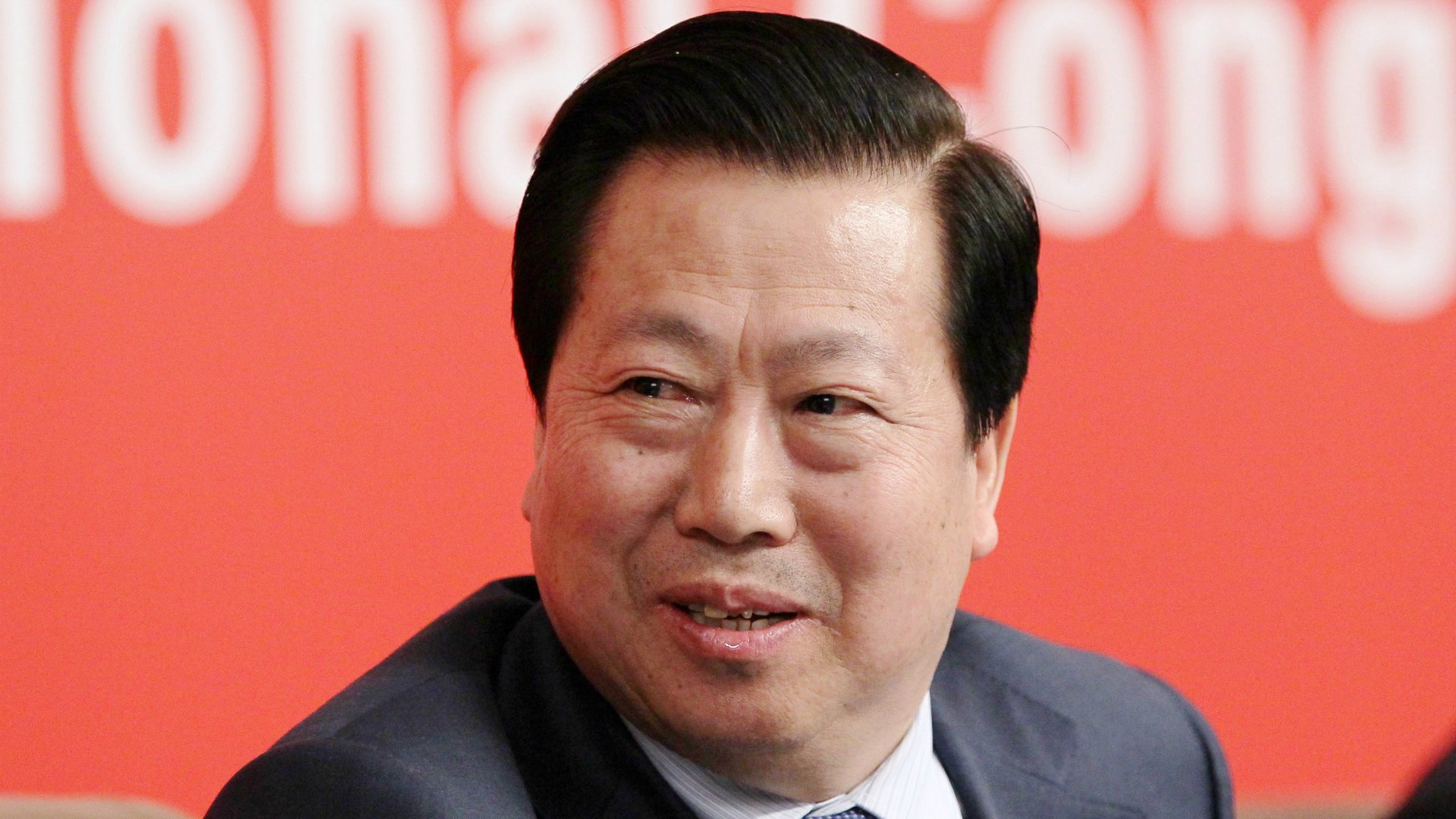The dubious achievements of Zhou Shengxian, China’s “embarrassing” environment minister
Zhou Shengxian, China’s environment minister, admitted on Tuesday that his ministry was one of the world’s “four major embarrassing departments.” He’s not wrong.


Zhou Shengxian, China’s environment minister, admitted on Tuesday that his ministry was one of the world’s “four major embarrassing departments.” He’s not wrong.
While China’s senior leadership has tried to seize every opportunity to portray itself as the paragon of environmentalism, the country’s record tells another story. Since Zhou became the head of China’s environmental protection agency in 2005 and then environment minister in 2008, he has presided over a dizzying array of scandals and environmental degradation.
Air
In January of last year, Zhou declared that Beijing would strive for “three firsts,” setting a new national standard for air quality, meeting international standards, and consistently monitoring air quality. Twelve months later, Beijing suffered record levels of air pollution so high that they literally were off the scale, posing an extremely high health risk to anyone unfortunate enough to need oxygen. A study released this week showed that life expectancy in northern China has been reduced by 5.5 years per person by air pollution.
Water
Zhou has been extremely vocal in the past on issues of water pollution. In 2009, he said he was “leading his 200-odd staff into all-out-warfare” against polluters. Expressing great concern for China’s nouveau riche, Zhou said: “It is a disgraceful lifestyle to drive a BMW but have only dirty water to drink.”
This year, China released its first ever five-year plan for the management of environmentally damaging chemicals. Unfortunately for Mr Zhou’s reputation, the report also laid out how bad China’s chemical pollution really is—it acknowledged the existence of “cancer villages” all over the country, caused by polluted water. Thousands of dead pigs floating in a Shanghai river didn’t help either.
Earth
In 2011, soil pollution was already on Zhou’s radar. The issue was given “priority status” at China’s leadership meetings and state media reported that Zhou had “vowed repeatedly” to strengthen efforts to curb soil pollution. In 2008, when he became environment minister, Zhou’s ministry website said that he was prioritizing soil “quality betterment, safeguarding the quality safety of farm produce and establishing [a] sound environment for human settlement.”
Unfortunately, those goals still appear some way off. Soil pollution is a “state secret,” and in May almost half the rice in the city of Guangzhou was found to contain cadmium, a dangerous carcinogen.
Even though the state news agency Xinhua later removed Zhou’s remarks describing the agency as an embarrassment, his comments were widely mocked. One microblogger summarized his achievements in a post that went viral:
“2006, lead pollution in Hui county, Gansu. 2007, algae bloom in Lake Tai. 2010, Zijin Mining pollution. 2011, ConocoPhilips oil leak. 2012, Guangxi cadmium pollution and Beijing smog. 2013, aniline leak in Shanxi, groundwater pollution in Shandong and pig corpses in Shanghai.”
In March this year, a meeting of Communist Party officials voted on 25 ministerial appointments. Zhou received the least support. The biggest embarrassment is that he still has a job.